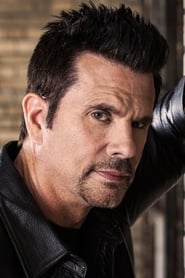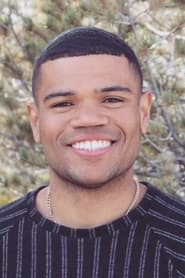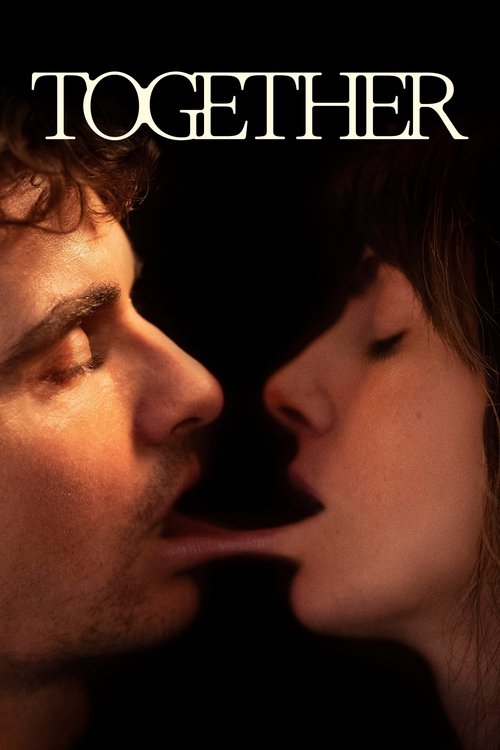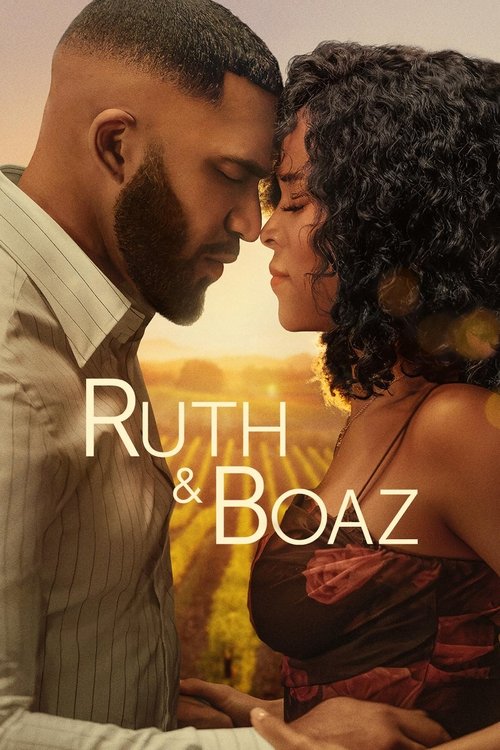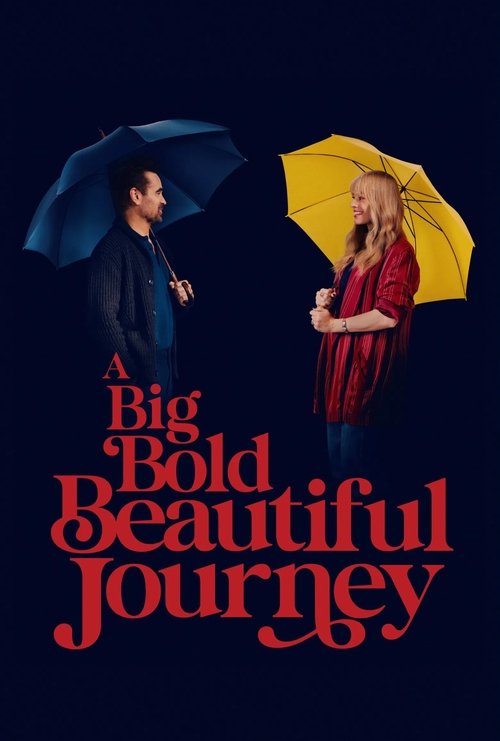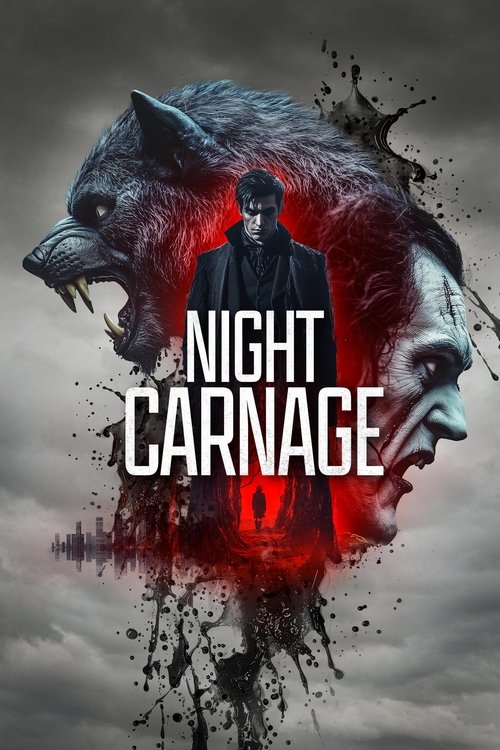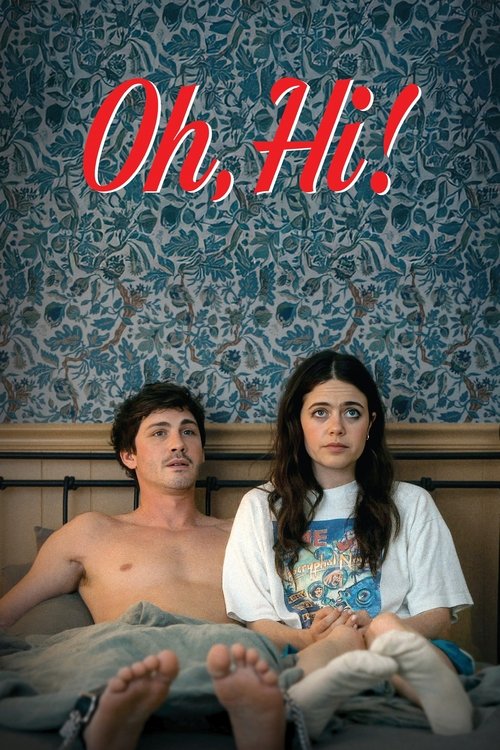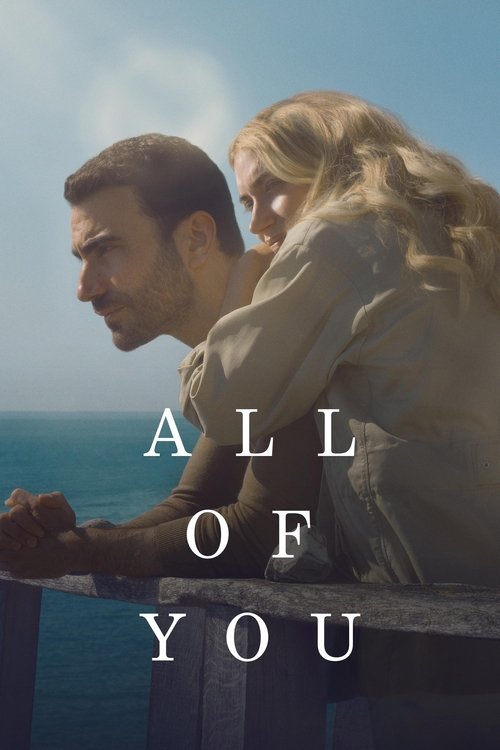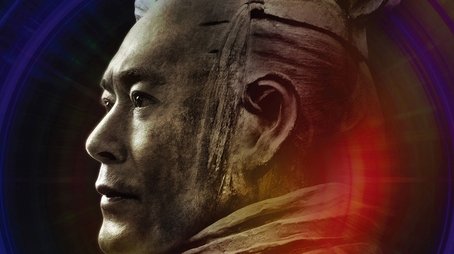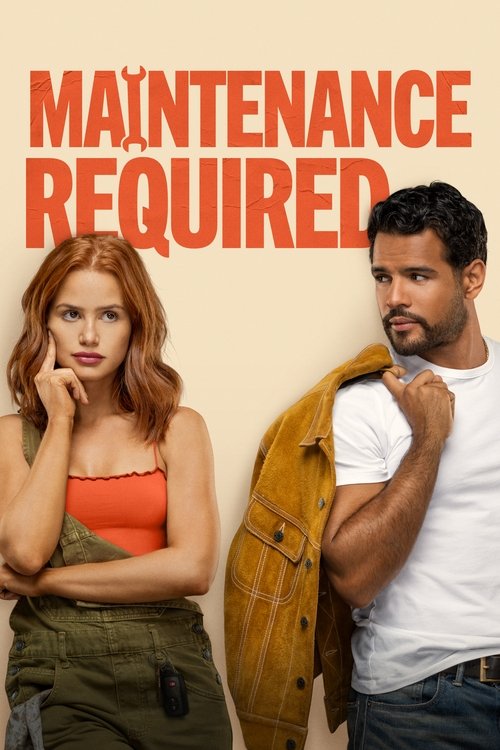
Ask Your Own Question
What is the plot?
The film opens in a cramped courthouse room in India where Vaani waits in a plain sari beside her parents and her younger brother. The registrar calls the next case and Vaani answers a phone call that changes everything: on the line, Mahesh, the college boyfriend she expected to marry, tells her he has chosen a businessman's daughter instead and that his ambitions leave no room for their plans. Vaani loses consciousness in the middle of the corridor; attendants carry her into a small anteroom while her family looks on in shock. In the weeks that follow she withdraws from everyone she knows. She stops going to the literary workshops she used to attend, abandons the freelance articles she was writing and leaves the notebook of poems that has been her constant companion at home untouched on the bedside table. Her mother and father stand at the doorway to her isolation, unable to pull her back, and Vaani sits for months, refusing to answer calls and refusing to leave the flat.
A few neighborhoods over, Krish Kapoor lives in a flat that reverberates with guitar strings and half-formed lyrics. He is a young musician who tries to turn his anger and the scars of his childhood into music. He has a volatile temper; on the night the film first introduces him, he is involved in a heated altercation with a journalist who criticizes his band. He sluggs the reporter in the back of the lobby of a music magazine and attracts police attention before KV, his loyal friend and investor in the band, hustles him free and pays the fines that follow. Krish's relationship with his father is brittle in the aftermath of his mother's death years earlier; the pair have not spoken in months, and Krish keeps his wound raw in the songs he writes.
Krish first encounters Vaani by accident. She is in the same neighborhood, seeking a position at a publishing house. She drops the worn notebook of poems she carries with her; pages scatter on the sidewalk. Krish sees the scattering pages and picks up the book later, realizing the handwriting is familiar from an essay he read at a friend's open-mic. He follows the notes inside to the building where she is applying. When a junior journalist for the publishing house makes a snide remark about the applicants, Krish, still sour from the earlier altercation, assaults the man and drags Vaani and her papers outside. He returns Vaani's notebook to her, and the brief exchange over pages leads him to tell her that her poems are honest in a way few things around them are. She is wary of his quick temper and erratic presence, but she sees that he understands language the way she does. She agrees, after some hesitation, to collaborate on a song Krish and his band are composing for a hip-hop artist named Prince.
Their first writing sessions are awkward. Vaani sits in the studio and stares at a blank page, and Krish paces and angrily taps chords until the music slows him down. When Vaani hits a creative block, Krish finds torn scraps of paper she has torn out of the notebook and left in a bus shelter. He piles the torn lines into a single sheet, takes her hand, and leads her across the street to a quiet cricket ground in the late afternoon sun. The cricket field is a place Krish claims as his own--he learned to breathe there, he tells her. He teaches her to listen to the rhythm of a bowled ball and the cadence of call-and-response from the batsmen. Vaani watches and then begins to write again, the words returning in a steady line. They construct the song together; he brings rawness and urgency, she brings images and structure. The collaboration stretches into long evenings and shared tea; they become friends through the studio lights.
Krish faces friction in other corners of his life while he helps Vaani rebuild her confidence. He fights with his band; disputes over money and title credits stack between them. KV, the friend who bankrolls the group, covers gigs and equipment costs, even taking out loans that threaten his education and future. When Krish's father, an alcoholic who lives alone in an old neighborhood flat, receives a call that cracks a long silence, Krish confronts him in an elevator, then walks out slamming the car door. Vaani shows up at Krish's rehearsal room the next morning with a thermos and a patient ear; she listens as he describes the loneliness that started after his mother died. She encourages him to approach his father about rehabilitation; because she has known loss, she believes in the work of bringing a person back. Krish, brittle and ashamed, tells his band he will pay for his father's program by forgoing credit on the song he and they finish for Prince. He signs away his claim to the track in order to get money for the rehab clinic, accepting the humiliation because he wants his father sober. The band takes the song, gives the credit to others to facilitate payment, and Krish withdraws from intense public recognition as payments are arranged. He tells Vaani he believes she deserves a life that is not mired in his chaotic labors and distances himself, even though they still meet for tea and small confessions.
After his father enters rehab, Krish keeps the lines of their fragile reconciliation open by sending letters and calls. Vaani continues to write and to join Krish at small gigs and studio sessions. Their relationship deepens: they share a first kiss behind the soundproof glass of a recording booth, then a full day of laughter at a graveside where Krish plays gentle chords and Vaani reads a poem aloud to the memory of his mother. They settle into a fragile intimacy that becomes a stabilizing force for Krish and a slow return to the world for Vaani. When word of the song reaches Prince, the singer invites them to perform. After the performance, Krish and Vaani recognize their feelings and begin an intimate relationship; Krish reconciles with the band as well, the friction thinning as they produce a hit that brings attention to Krish's music.
Vaani's parents watch with cautious approval. They have seen Vaani collapse once before and they fear a repeat. Their protective instincts intensify when, after Krish and Vaani have begun to live openly as a couple, medical appointments reveal a frightening truth: tests diagnose Vaani with early-onset Alzheimer's disease. The neurologist explains that memory impairment can progress and that episodic disorientation will likely occur. Krish receives the news in a fluorescent clinic room; he looks at Vaani's hands and promises, aloud, to stay by her side regardless of the prognosis. Vaani's mother, worried that Krish will be overburdened, urges him to think of their daughter's safety and calls her father in the evenings to ask what he believes is best. The parents ask the doctor whether a change of environment might help; on the neurologist's advice, Vaani's family considers moving her routine to a calmer place.
The first visible signs of Vaani's memory lapses occur in public. She bumps into Mahesh in the lobby of a publishing house where he has come to buy part of the company she once hoped to work for. The encounter collapses into a scene: Vaani breaks down, unable to place who Mahesh is, and collapses into a tearful heap in the hallway. The crowd murmurs, and Krish rushes up to steady her. Later at a benefit concert, when Mahesh tries to capitalize on Vaani's vulnerability and approaches the stage, Krish moves protectively between them. Words erupt into a shoving match. Krish lunges and beats Mahesh in front of a stunned audience; people shout and security intervenes. Vaani, startled by the violence and by the faces in the crowd she can no longer map against memories, flails and panics. In her confusion she grabs a small knife from a catering table and, believing that Krish has attacked an intruder named Mahesh, stabs him in the torso. The knife wound is a jarring, chaotic moment; Krish collapses and the scene becomes a blend of alarms and anguished faces. Medical personnel rush Krish to a hospital where surgeons stitch the wound closed. Krish is grievously hurt but alive; he later tells the doctors he understands it was a reaction born from fear on Vaani's part.
After the stabbing, Vaani flees the venue. She moves out of their shared flat and into a guesthouse by the sea at the insistence of her unsettled parents. Krish's father calls from the rehab center and, speaking on a bench outside the ward, tells his son that losing temper to violence was not the answer and that Krish must learn to be steady. The father and son reconcile; the elder man stands by Krish in the hospital corridor as he decides to put Vaani's needs first. Krish leaves work obligations and any touring plans behind to care for her, and he insists on being present through daily therapy sessions and memory exercises. In quiet moments, Krish sits at a piano and plays a melody he has been shaping for weeks. Vaani listens, her fingers tracing old verses; she says she loves the tune and offers to write the words. It becomes one of the last coherent collaborations of their early relationship.
On a day that starts with a kiss and the promise of a future, Vaani calls Krish by Mahesh's name. The misnaming is a hard blow; the doctor warns them that such confabulations will grow more frequent. Krish leaves for a management meeting to try to secure an independent release of the work he and Vaani created, but when he returns to the guesthouse several hours later, Vaani is nowhere to be found. He searches the seaside town, asks the guesthouse manager and reads the thin diary she carried with her--the diary that contains lines of a song she called "Saiyaara." Her belongings are still in the room, but there is no sign of where she might have gone. He files reports, posts notices and walks through local ashrams and hospitals, but Vaani is gone.
Months pass. Krish records the song Vaani helped him shape and releases it under the name "Saiyaara." He dedicates it to the woman who taught him to write and to live through music. The recording becomes a viral success; the melody and Vaani's words spread across radio stations and playlists. Fame arrives unevenly; Krish accepts interviews and performs on radio while holding the image of Vaani in his mind. He carries her notebook onstage, and he sings the chorus until it becomes a worldwide earworm. Fans begin to make videos paying tribute to the lost muse whose words are now famous.
A year after she disappears, KV, Krish's friend, watches social media obsessively. One morning he recognizes, in a video filmed by a hiker, a face he knows: Vaani, unmistakable, wandering the mountain paths of Manali and moving toward a small hilltop ashram. KV sends the clip to Krish and Krish rushes to the railway station, buys a seat on the next train to the foothills, and drives through the winding mountain roads until he finds the ashram's dusty courtyard. There, sitting among chanting monks and women who tend the kitchens, he finds Vaani. At first she does not speak; she looks at him with the flat detachment of someone who has been learning to live day by day. She brings him a folded note in which she explains that after the concert incident she left to spare him from the burden of her illness, that she followed his music from afar, and that she comes and goes remembering some fragments but not much. Krish reads the simple letter and sees that she still writes lines that cut to the bone. He asks to stay, and the ashram allows him to remain as a guest. He tries to reintroduce familiar rituals: morning walks, the cricket field rhythms, revisiting the first places they connected and the lines they wrote together. Slowly--over coffee, over shared silence, over a verse played on the piano--Vaani's memory returns in fragments. She remembers the cricket ground and the way light fell in the studio. She kisses the page that contains the lyrics to "Saiyaara," and some memories of love click back, not all but enough to stitch them together.
On the day their reunion becomes less fragile, Krish receives news from overseas: the single "Saiyaara" is being pushed to international radio rotations and a performance opportunity opens at Wembley Stadium. In an act that blurs public triumph and private reclamation, Krish performs at Wembley. In front of a stadium full of lights and faces, he brings Vaani onto the stage as a surprise; she stands beside him and, as the last notes of the song echo, she smiles and tells him she remembers their first meeting at the cricket ground. The memory is not entire, but the two of them commit to living the present they have. They marry in a small ceremony after the concert, in front of family members who have flown to London and in front of friends from the music world who have watched the story unfold. Vaani resumes writing new pages in her notebook and, during a quiet moment at the reception, she scribbles lines about the marriage as Krish plays a new melody at the piano.
While Krish and Vaani rebuild their life stage by stage, across an ocean and a continent, another story unfolds in a sunburnt valley that is surrounded by rows of grapevines. Victoria, a young woman raised among the earth and vines of her family's estate, tells her father and her extended family the truth at the kitchen table one morning: the man who has been living with her at the house, Paul, is not her husband; she is pregnant by another man. She says the truth with a voice that trembles but is steady, and the family reacts in a storm of whispers. Paul listens quietly. Earlier in the winter he had gone back to San Francisco for reasons that seem in his own story to belong to a different life; there, he found his own marriage in the state in which many marriages exist--disconnected and formal. When he returns to the city in search of resolution, he finds his wife in a small flat with another man. She slides a packet of papers across the kitchen table and tells him she wants an annulment; she has already had the document drawn and signed. Paul agrees and signs the papers without asking for a fight. He leaves San Francisco with the clean pages of his past in his pocket and takes the next flight across the country back to the valley where Victoria lives.
Paul arrives at the vineyard in the late afternoon and walks into a scene where the family men sit under an awning drinking wine. Alberto, Victoria's father, is in the deep shadow of a long holiday after a hard season; he is often in possession of his liquor when the sun goes down. Paul approaches Alberto directly and tells him that he is no longer married and that he wants to make Victoria his wife because he loves her. Alberto hears the words, and for a moment there is only the clink of glasses and the chirp of distant birds. Then the elder man, enraged and humiliated by life's many betrayals, lunges. The two men lash out at one another. In the struggle that follows, Alberto handles a torch used for clearing dry growth from between the vines. He trips in the footing of the terrace and the torch drops, spraying flame across the nearest rows. The dry leaves catch instantly. Paul and the family scramble--hands, jackets, blankets--but wind and tinder turn a tossed spark into an advancing wall of orange. The vineyard becomes a living blaze; the family splinters into teams that beat at the embers and attempt to smother the tongues of fire with soil and canvas, but the flames leap from trellis to trellis faster than anyone can contain them. They stand stunned as the fire consumes the vines and the red leaves roll up in smoke. The wildfire of a summer is in the space of a single afternoon, and the valley loses its green.
After the flames die down to embers in the pale light of evening, the estate looks devastated. The family walks the blackened rows and finds charred posts and ash where once there was sweet fruit. Men in the family curse and cry. Paul watches the ruin, and then he remembers a lesson the old grandfather taught him weeks earlier: near the property's edge there plots of a wild, ancient grape root that predate the commercial rows. Paul kneels in the dirt where the vines have been burned and digs until his hands meet root. He finds the old plant, brown at the surface but alive below. He holds the root up to Alberto, leaves flecked with ash, and Alberto runs his fingers along the living stem and feels that there is a pulse under the char. The ancient varietal, stubborn and old, will survive even when the tender new vines have burned. With this evidence, hope returns to the cluster of people bowed over the ground. The elder man sees the green within the black and begins to speak of planting, of starting again.
Alberto's anger softens in the days that follow as he watches Paul and the family work together to cut back the scorched trunks and harvest what they can from the surviving blocks. Paul tends the ancient root with patience. He clears what ash remains and covers the soil to protect the tender shoots. Slowly, the family accepts him as one of their own; he spends afternoons teaching the younger laborers pruning techniques and evenings sitting with the women telling stories. Alberto, once guarded and suspicious of those who come from city streets and talk of new lives, sees in Paul a man who risks reputation to rebuild a life with Victoria, despite the complications of her pregnancy by another man. When the land steadies and the shoots start to show faint green, Alberto nods and gives his blessing. He tells Paul, in a voice that rumbles like old machinery, to marry Victoria if that is what the two want. Paul and Victoria arrange a small wedding beneath the same arbor that once bore grapes and now holds lanterns. The family gathers at a long table, and Paul finally finds a family that accepts his love and work.
The film closes by moving between both reconciliations. In London, Krish performs at Wembley Stadium before a sea of faces; Vaani stands beside him onstage and, in the bright lights and the roar of the crowd, they exchange vows in a small ceremony for friends and family. She writes the last line of a new poem at the table where the reception is held, and he plays the melody she first wrote words to. At the vineyard, Paul stands beside Victoria as Alberto and the rest of the family look on at a humble celebration among newly planted rows of vines. The camera lingers on the hands of both couples: Krish and Vaani's hands clasped above a piano, Paul and Victoria's fingers threaded through each other's while they plant the first new stake in the rehabilitated field. There are no further violent confrontations, no new devastations. Vaani continues to have lapses but the film shows she can hold certain days; Krish remains at her side. The old grape root continues to push green from blackened soil. The final images are of two weddings: one in the glare of a stadium, one in the hush of an evening valley--both couples beginning lives that are stitched from the scars and songs that preceded them. The credits begin as the camera pulls away from the valley and the stadium, leaving both newly formed families under sky. There are no murders in the story; the only death explicitly noted is that of Krish's mother years earlier, an illness that left Krish and his father with wounds they work to mend throughout the film. The last frame holds on the two couples smiling quietly, hands intertwined, and then goes dark.
What is the ending?
Short, Simple Narrative of the Ending
Brooklyn, a Seattle TV reporter, and Jared, a hot air balloon pilot, have grown close during the Albuquerque Balloon Fiesta, despite Brooklyn's assignment to expose Jared and his own reluctance to trust love. After a misunderstanding, Jared distances himself, believing Brooklyn is only using him for a story. Brooklyn, who has actually refused to do the exposé and is considering a new job in Albuquerque, is heartbroken. With the help of their friends Elise and Carlos, the truth comes out. Jared and Brooklyn reconcile, realizing their genuine feelings for each other. The movie ends with them together, looking toward a future that blends their careers and lives, while Elise and Carlos also begin a new relationship.
Expanded, Chronological, Scene-by-Scene Narrative of the Ending
As the Albuquerque Balloon Fiesta reaches its climax, the winds finally calm, allowing the balloons to take flight. Brooklyn, who has spent the festival torn between her professional duty to her producer Mary and her growing affection for Jared, is visibly anxious. She has not only resisted Mary's pressure to produce a damaging story about Jared but has also secretly applied for a lifestyle reporter position at a local Albuquerque TV station, signaling her desire for a fresh start--both personally and professionally.
Jared, still stung by his past betrayal and wary of being used, overhears a fragment of Brooklyn's phone conversation with Mary. Misinterpreting her words, he believes Brooklyn is indeed exploiting him for a story. His face hardens; he withdraws emotionally, giving Brooklyn the cold shoulder. Brooklyn, confused and hurt by his sudden distance, tries to explain, but Jared, guarded and defensive, refuses to listen. The tension between them is palpable as they move through the festival grounds, surrounded by the vibrant colors and laughter of the crowd, which only heightens their isolation from each other.
Elise, Brooklyn's supportive friend, and Carlos, Jared's assistant, notice the rift. Elise, who has developed a warm rapport with Carlos, confides in him about Brooklyn's true intentions and her job application. Carlos, loyal to Jared but also caring for Brooklyn, decides to intervene. He approaches Jared privately, urging him to hear Brooklyn out. Jared, his pride wounded but his heart conflicted, hesitates. Meanwhile, Brooklyn, feeling the weight of potential loss, gathers her courage. She seeks out Jared, determined to set the record straight, her voice trembling but resolute.
In a quiet moment away from the festival's bustle, Brooklyn finds Jared preparing his balloon. The early morning light casts long shadows as she approaches. She tells him everything: her refusal to betray him, her application for the Albuquerque job, her fear of heights, and most importantly, her genuine feelings for him. Jared listens, his expression shifting from skepticism to vulnerability. He admits his own fears--of being hurt again, of trusting someone new. The two stand close, the heat from the balloon's burner mirroring the warmth growing between them.
As the first balloons begin to ascend, Jared extends his hand to Brooklyn, inviting her to join him in the sky. She hesitates, her fear of heights evident, but with Jared's encouragement, she steps into the basket. The balloon lifts off, the ground falling away beneath them. Brooklyn grips the edge, her knuckles white, but as she looks at Jared--his focus on the horizon, his occasional reassuring glance--her fear begins to ebb. The world below is a patchwork of color and light, the other balloons drifting like giant, glowing flowers. In this moment, suspended between earth and sky, they share a quiet understanding. Jared takes Brooklyn's hand, and she squeezes back, a silent promise passing between them.
On the ground, Elise and Carlos watch the balloon rise, their own connection deepening. They make plans for Carlos to visit Seattle, their smiles easy and hopeful. Jared's parents, Jane and Brad, observe from a distance. Jane, who had subtly encouraged the romance, smiles knowingly, while Brad, still adjusting to retirement and his changed role in the family, nods in quiet approval.
The movie's final scene shows Brooklyn and Jared floating together, the sunrise painting the sky in gold and pink. Brooklyn, no longer afraid, leans into Jared, her face relaxed and happy. Jared, his guard finally down, looks at her with open affection. The camera pulls back, revealing the spectacle of the fiesta below--a symbol of new beginnings and the joy of taking risks for love.
Fate of Each Main Character
- Brooklyn: Reconciles with Jared, overcomes her fear of heights, and decides to pursue a new career in Albuquerque, embracing both her professional ambitions and her relationship with Jared.
- Jared: Lets go of his distrust, opens his heart to love again, and finds renewed purpose both in his ballooning business and in his relationship with Brooklyn.
- Elise: Begins a promising relationship with Carlos and looks forward to his visit to Seattle, her supportive nature rewarded with her own romantic happiness.
- Carlos: Forms a bond with Elise and plans to visit her, his loyalty to Jared now matched by his own hopeful future.
- Jane (Jared's mother): Observes her son's happiness with quiet satisfaction, her subtle matchmaking efforts successful.
- Brad (Jared's father): Comes to terms with his retirement, finding a measure of peace in his son's new beginning.
The ending underscores the movie's key points: the importance of honesty and communication in relationships, the courage to face fears (both emotional and physical), and the possibility of second chances--for love, for trust, and for life's direction. The visual spectacle of the balloon fiesta serves as a metaphor for the characters' emotional journeys--rising above past hurts, embracing vulnerability, and finding joy in new horizons.
Is there a post-credit scene?
Based on available sources, there is no evidence that the 2025 Hallmark TV movie Love in the Clouds contains a post-credits scene. The film, starring Paul Greene and McKenzie Westmore, is a romantic comedy set during the Albuquerque International Balloon Fiesta, focusing on the relationship between a balloon pilot and a media professional.
No plot summaries, reviews, or official promotional materials mention any additional scenes after the credits, nor do they describe any narrative content--such as a teaser, gag, or sequel hint--that would play once the credits have concluded. The film's structure appears to follow the standard Hallmark romance format, wrapping up the central love story during the main runtime without extending the narrative into a post-credits sequence.
If a post-credits scene were present, it would typically be noted in detailed recaps, official synopses, or fan discussions--especially for a film released in 2025, when such scenes are commonly cataloged online. However, none of the current sources, including IMDb, Hallmark's own promotional content, or video recaps, reference anything beyond the main ending.
In summary, Love in the Clouds (2025) does not have a post-credits scene based on all available information. The story concludes with the resolution of the central romance, and viewers are not directed to stay through the credits for additional content.
What are the main character dynamics and relationships in Love In The Clouds (2025)?
The story features Brooklyn, an on-air business reporter from Seattle, who is assigned to cover the Albuquerque Balloon Fiesta. She stays with Jared Troy, a hot air balloon pilot who offers romantic balloon rides but is closed off to love due to a past heartbreak. Brooklyn also has a videographer friend, Elise, who develops a connection with Jared's assistant Carlos. Jared's parents, Jane and Brad, also play roles in encouraging relationships and dealing with their own issues. Brooklyn and Jared develop mutual romantic feelings, complicated by Brooklyn's job assignment and Jared's reluctance to share his personal life.
How does Brooklyn's fear of heights influence the story?
Brooklyn has a fear of heights, which makes her hesitant about hot air balloon rides. Despite this, she is assigned to cover the Balloon Fiesta and stays with Jared, the balloon pilot. Her fear is a personal challenge she must overcome as she spends time with Jared and becomes more involved in the balloon festival and his business. This fear adds tension and depth to her character and their developing relationship.
What is the significance of Jared's business and his views on love?
Jared runs 'Love in the Air,' a business providing romantic hot air balloon rides designed for proposals and special moments. However, he reveals to Brooklyn that the business is a gimmick because he does not currently believe in love, having been hurt when his former girlfriend left him for his best friend and business partner. This backstory explains his reluctance to discuss his personal life and creates conflict in his growing relationship with Brooklyn.
What role does Brooklyn's job and her reporting assignment play in the story?
Brooklyn is a business reporter who wants to move into lifestyle reporting for more freedom. She is assigned to cover the Balloon Fiesta and to focus on Jared's business, with a directive from her boss Mary to uncover any secrets Jared might be hiding. This assignment puts Brooklyn in a dilemma between pursuing a career story that could harm her relationship with Jared or protecting their romance by withholding the story. This conflict drives much of the plot tension.
How do secondary characters influence the main storyline?
Secondary characters such as Elise, Brooklyn's videographer friend, and Carlos, Jared's assistant, develop their own romantic subplot, encouraged by Brooklyn. Jared's parents, Jane and Brad, also influence the story: Jane supports the budding relationships, while Brad struggles with his own feelings of uselessness after retirement. These characters add layers to the narrative and help move the main characters' stories forward, including attempts to rescue Brooklyn and Jared's relationship when misunderstandings arise.
Is this family friendly?
The movie Love In The Clouds (2025) is rated TV-G, indicating it is generally suitable for all ages and family-friendly. However, some aspects might be potentially upsetting or objectionable for children or sensitive viewers:
- The film includes a character with a "grumpy and flat" boss who is humorless and overbearing, which might create a tense or unpleasant atmosphere in some scenes.
- The lead male's family members are described as sad or "cast a cloud of sorrow," which could introduce some emotional heaviness or mild melancholy.
- There are no reports of violence, strong language, or explicit content, consistent with the TV-G rating.
Overall, the movie is a light romantic comedy with no significant objectionable content, but sensitive viewers might find the emotional tone in some family scenes a bit somber. There are no spoilers or plot details revealed in these observations.





